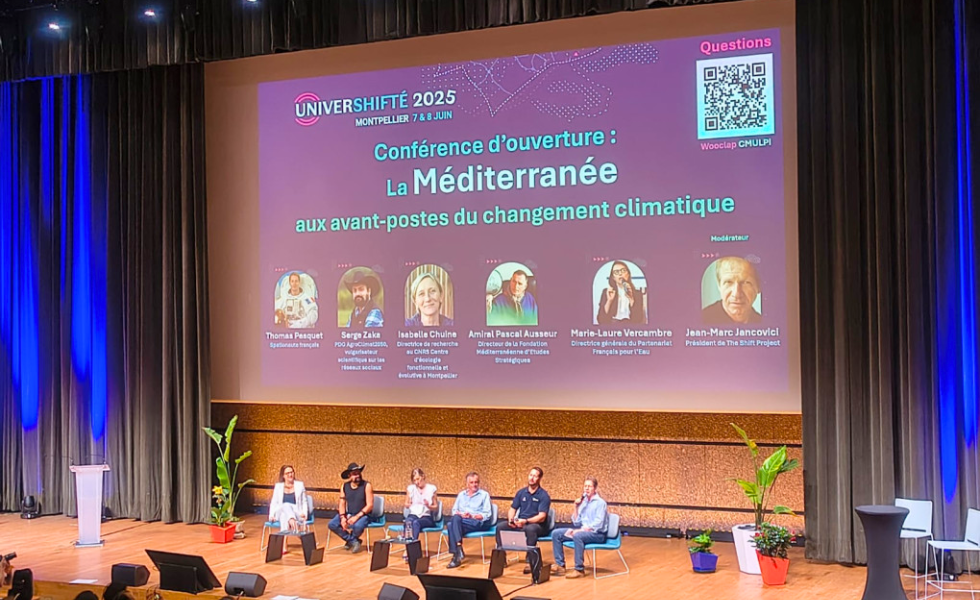The Mediterranean is one of the regions most affected by climate change. UniverShifté 2025, a national event organized by The Shifters, held on June 6-7 at the Montpellier Corum and attended by Jean-Marc Jancovici, president of The Shift Project, painted a grim picture of the risks facing the region by 2050 if nothing is done to avert them.
“We are facing a daunting challenge at this time. It is absolutely essential for us to continue and expand on the commitments made in the Paris Agreement,” emphasized Michaël Delafosse, Mayor of Montpellier and President of Montpellier Métropole, in his welcome speech to participants. He added: “Decarbonization cannot be successful if we do not get everyone on board, from citizens who are least involved in the ecological transition to economic stakeholders.”
A hotspot for biodiversity, the Mediterranean region is already facing numerous challenges, as evidenced by the increasing frequency of extreme events such as heat waves, droughts, fires and floods. “Seen from space, wildfires are becoming more and more dramatic,” observes Thomas Pesquet, the French astronaut invited by The Shifters to their very first round table discussion.
This is partially because Mediterranean lands are warming 20% faster than the global average. “Conditions in the Mediterranean region will become unbearable for many species. Weather models all show an intensification of climate change,” warns Isabelle Chuine, ecology researcher, winner of the 2020 CNRS Silver Medal, and founder of the National Observatory on the Effects of Climate Change on Seasonal Rhythms in the Living World.
Biological cycles are the first to be affected, with spring arriving earlier. This is already having an impact on agriculture, according to agroclimatologist Serge Zaka, who points out the fact that flowering is occurring earlier and earlier in the season, exposing plants to the risk of late frosts. “Temperatures will consistently exceed 40°C and Mediterranean soils will dry out, leading to crop losses,” he warns.
This threat is all the more predictable given the additional challenges posed by water resources. “Climate change is also disrupting water cycles,” confirms Marie‑Laure Vercambre, General Manager of the French Water Partnership. On a more general note, climate change will accelerate “global fragmentation” and tensions will continue to rise. “Everything Europe has worked to overcome is coming back at us like a boomerang,” says Admiral Pascal Ausseur, General Director of the Mediterranean Foundation for Strategic Studies. Serge Zaka concludes: “Our only way forward is to reduce CO2 emissions. If we lose our plants and animals, we will also lose ourselves.”

Photo ©3M




